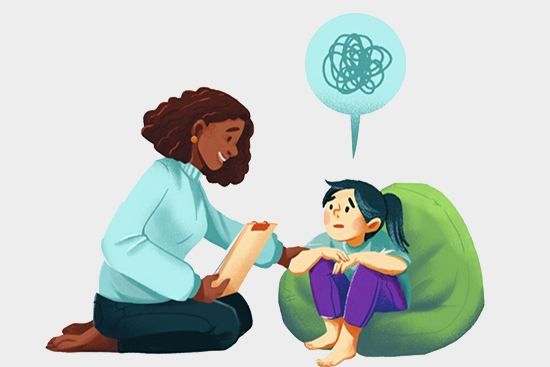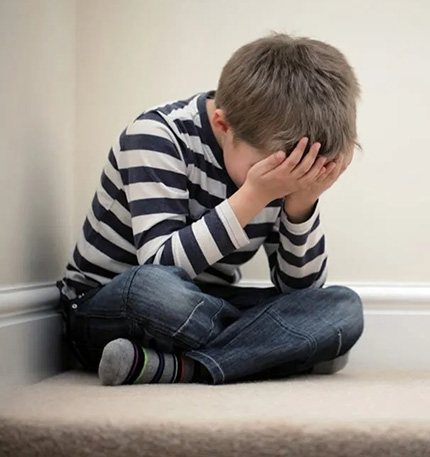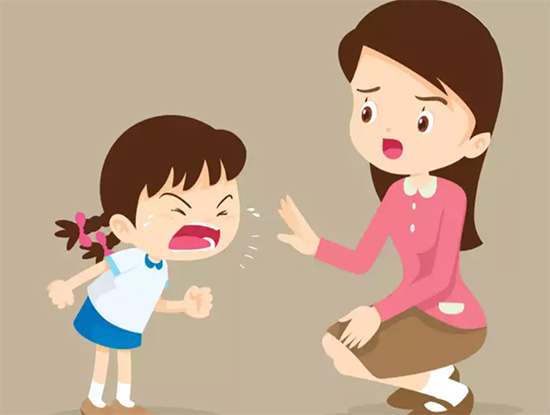Understanding Children's Mental Health: A Comprehensive Guide for Parents
Get Your Free Trial Now!
Understanding Children's Mental Health:
A Comprehensive Guide for Parents
In today's fast-paced world, children's mental health has become a growing concern. With increasing academic pressures, social challenges, and the impact of technology, parents need to be more vigilant and supportive of their child's mental well-being.
This blog will provide insights into understanding your child's mental health, identifying signs of distress, and offering practical strategies to support their emotional development.

Understanding Children's Mental Health
Children's mental health encompasses their emotional, psychological, and social well-being. It affects how they think, feel, and act, and plays a crucial role in how they handle stress, relate to others, and make decisions. Good mental health is essential for children to develop in a healthy and balanced way, enabling them to reach their full potential.


Common Mental Health Issues in Children
Understanding common mental health issues in children can help parents recognize signs of distress early on. Some prevalent conditions include:
- Anxiety Disorders: Excessive worry, fear, or nervousness that interferes with daily activities.
- Depression: Persistent sadness, loss of interest in activities, and changes in appetite or sleep patterns.
- Attention-Deficit/Hyperactivity Disorder (ADHD): Difficulty focusing, hyperactivity, and impulsive behavior.
- Behavioral Disorders: Oppositional defiant disorder (ODD) and conduct disorder, characterized by disruptive and violent behaviors.
- Autism Spectrum Disorders (ASD): A range of conditions affecting social skills, communication, and behavior.
Identifying Signs of Mental Health Issues
Parents play a crucial role in identifying early signs of mental health issues. Key indicators to watch for include:
- ● Changes in Behavior: Sudden mood swings, withdrawal from social activities, or drastic changes in behavior.
- ● Academic Performance: Decline in school performance, lack of interest in schoolwork, or frequent absences.
- ● Physical Symptoms: Frequent headaches, stomachaches, or unexplained physical complaints.
- ● Sleep Patterns: Difficulty sleeping, nightmares, or significant changes in sleep habits.
- ● Emotional Outbursts: Increased irritability, anger, or tearfulness.

Strategies to Support Your Child's Mental Health
Supporting your child's mental health requires a proactive and compassionate approach. Here are some effective strategies:
1. Create a Safe and Supportive Environment
- ● Open Communication: Encourage open dialogue about feelings and experiences. Listen without judgment and validate their emotions.
- ● Consistency and Routine: Establish a consistent daily routine to provide a sense of stability and security.
- ● Positive Reinforcement: Recognize and praise your child's efforts and achievements to boost their self-esteem.
2. Promote Healthy Lifestyle Habits
- ● Balanced Diet: Ensure your child has a nutritious diet that includes a variety of fruits, vegetables, whole grains, and proteins.
- ● Regular Exercise: Encourage physical activity to promote overall well-being and reduce stress.
- ● Adequate Sleep: Establish a bedtime routine to ensure your child gets enough rest for their age.
3. Teach Coping Skills
- ● Problem-Solving: Teach your child problem-solving skills to help them navigate challenges effectively.
- ● Relaxation Techniques: Introduce relaxation techniques such as deep breathing, meditation, or yoga to manage stress.
- ● Social Skills: Help your child develop healthy social skills to build positive relationships with peers.
4. Be a Positive Role Model
- ● Model Healthy Behaviors: Demonstrate healthy ways of managing stress and emotions.
- ● Self-Care: Prioritize your own mental health and well-being to set a positive example for your child.
How Gap Analysis Can Help Improve Performance and Reduce Mental Health Issues
Gap analysis is a powerful tool that can help identify the disparities between the current state and desired outcomes, making it particularly useful in addressing mental health issues in children. By understanding where gaps exist, parents, educators, and mental health professionals can take targeted actions to improve performance and well-being. Here's how gap analysis can help reduce mental health issues.
1. Identify Specific Areas of Concern
Gap analysis helps to pinpoint specific areas where a child might be struggling. For example, if a child is experiencing anxiety, gap analysis can reveal whether the issue stems from academic pressures, social interactions, or other factors. This precise identification allows for more targeted interventions.
2. Set Realistic Goals and Expectations
By comparing the current state with desired outcomes, parents and educators can set realistic and achievable goals for the child. This can reduce the pressure on the child to meet unrealistic expectations, thereby lowering stress and anxiety levels.
3. Develop Targeted Interventions
Once gaps are identified, specific strategies can be developed to address them. For instance, if a child has difficulty with social skills, interventions such as social skills training or peer mentoring can be implemented. Targeted interventions ensure that efforts are focused on areas that will make the most significant impact.
4. Monitor Progress and Adjust Strategies
Gap analysis is not a one-time process. Continuous monitoring and evaluation are essential to ensure that interventions are effective. By regularly assessing the child's progress, adjustments can be made to strategies to better support the child's mental health and academic performance.
5. Enhance Communication and Collaboration
Gap analysis encourages communication and collaboration between parents, teachers, and mental health professionals. By working together, they can share insights and develop a cohesive plan to support the child's mental health. This collaborative approach ensures that the child receives consistent support across different environments.
Seeking Professional Help
Sometimes, professional intervention is necessary to support a child's mental health. If you notice persistent signs of distress, consider seeking help from a mental health professional. Types of professionals include:
- ● Pediatricians: Can provide initial assessments and referrals to specialists.
- ● Child Psychologists/Psychiatrists: Specialize in diagnosing and treating mental health disorders in children.
- ● School Counselors: Offer support and resources within the educational environment.

Conclusion
Supporting your child's mental health is a vital aspect of parenting in today's world. By understanding common mental health issues, recognizing signs of distress, and implementing effective strategies, parents can play a pivotal role in their child's emotional well-being.
Remember, fostering a supportive environment and seeking professional help when needed are key steps in ensuring your child grows up healthy, happy, and resilient.
